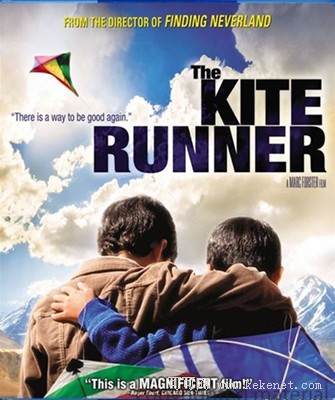Usually, each neighborhood held its own competition. But that year, the tournament was going to be held in my neighborhood, Wazir Akbar Khan, and several other districts--Karteh-Char, Karteh-Parwan, Mekro-Rayan, and Koteh-Sangi--had been invited. You could hardly go anywhere without hearing talk of the upcoming tournament. Word had it this was going to be the biggest tournament in twenty-five years.

One night that winter, with the big contest only four days away, Baba and I sat in his study in overstuffed leather chairs by the glow of the fireplace. We were sipping tea, talking. Ali had served dinner earlier--potatoes and curried cauliflower over rice--and had retired for the night with Hassan. Baba was fattening his pipe and I was asking him to tell the story about the winter a pack of wolves had descended from the mountains in Herat and forced everyone to stay indoors for a week, when he lit a match and said, casually, "I think maybe you'll win the tournament this year. What do you think?"
I didn't know what to think. Or what to say. Was that what it would take? Had he just slipped me a key? I was a good kite fighter. Actually, a very good one. A few times, I'd even come close to winning the winter tournament--once, I'd made it to the final three. But coming close wasn't the same as winning, was it? Baba hadn't "come close". He had won because winners won and everyone else just went Home. Baba was used to winning, winning at everything he set his mind to. Didn't he have a right to expect the same from his son? And just imagine. If I did win...
Baba smoked his pipe and talked. I pretended to listen. But I couldn't listen, not really, because Baba's casual little comment had planted a seed in my head: the resolution that I would win that winter's tournament. I was going to win. There was no other viable option. I was going to win, and I was going to run that last kite. Then I'd bring it Home and show it to Baba. Show him once and for all that his son was worthy. Then maybe my life as a ghost in this house would finally be over. I let myself dream: I imagined conversation and laughter over dinner instead of silence broken only by the clinking of silverware and the occasional grunt. I envisioned us taking a Friday drive in Baba's car to Paghman, stopping on the way at Ghargha Lake for some fried trout and potatoes. We'd go to the zoo to see Marjan the lion, and maybe Baba wouldn't yawn and steal looks at his wristwatch all the time. Maybe Baba would even read one of my stories. I'd write him a hundred if I thought he'd read one. Maybe he'd call me Amir jan like Rahim Khan did. And maybe, just maybe, I would finally be pardoned for killing my mother.
Baba was telling me about the time he'd cut fourteen kites on the same day. I smiled, nodded, laughed at all the right places, but I hardly heard a word he said. I had a mission now. And I wasn't going to fail Baba. Not this time.












